|
John Tyler became President upon the death (by pneumonia) of William Henry Harrison, 31 days after Harrison was sworn in as the 9th President. His decisive action set a precedent that was followed until the Twenty-Fifth Amendment made the succession of the Vice President a part of the Constitution. Tyler had run as the Vice President on the Whig ticket with Harrison, and the Whigs won the election largely because the economic catastrophe brought on by the policies of President Andrew Jackson and the failure of Martin Van Buren--both of the opposing party--to remedy that catastrophe. It is therefore ironic--to the point of being bizarre--that Tyler rejected the policies of the Whig Party regarding the national bank as unconsititutional. His rejection of his party's policies led to his expulsion from the Whig party. The Whig leaders in Congress dubbed Tyler "His Accidency" because he was not elected. As you might expect, the partisan infighting that resulted led to Tyler not getting much done as President, and not running in the election of 1845. Among his other firsts, Tyler has the distinction of being the first President to have his veto of a piece of legislation overridden by Congress.
0 Comments
Ironically, the quotation we shared from Martin Van Buren yesterday combined with his failure to effectively address the depression that followed the Panic of 1837 led to his defeat in the election of 1840. He lost to William Henry Harrison, a successful frontier general who also had some experience as a territorial governor, Member of Congress, and the U.S. representative to Gran Colombia. At the time of his election, Harrison was the oldest person to be elected President. He contracted pneumonia delivering the longest inaugural address in American history, and died 31 days into his term--the first President to die in office. His Vice President immediately moved into the White House and took the oath of office in order to forestall a Constitutional crisis, setting a precedent that has been followed ever since. The succession of the Vice President was not formally a part of the Constitution until the passage of the Twenty-Fifth Amendment in 1967.
Among the many blessings to befall the American Republic is the fact that he first six presidents of the United States were strong presidents, able to meet the challenges of our young country. They were certainly not perfect. They made mistakes. But to a man, they were able to rise to the challenges they faced. Even Jackson, the seventh President, who pursued policies that proved ruinous to the economy and near genocidal to native Americans, was able to define and achieve his agenda. In Van Buren, we find our first example of a President who fails to resolve the central problem of his presidency: the Panic of 1837. While clearly brought on by the mistakes of Andrew Jackson, the task of righting the ship fell to Van Buren. Van Buren tried to cope with the economic depression by pulling federal funds out of state banks and creating an independent treasury, but Congress would not approve of this tactic until 1840. To Van Buren fell the task of administering the nearly 70 treaties signed with various Native American tribes by his predecessor. And in spite of the fact that thousands of indigenous people died under the so-called Indian Removal Act, we find numerous examples of Van Buren giving glowing and totally false reports of the success of the resettlements and the welfare of the affected native peoples. By 1840, hostile newspapers had dubbed the President "Martin Van Ruin", and he lost the election to William Henry Harrison that year.
Andrew Jackson was a populist--a successful frontier lawyer and military leader who defeated incumbent John Quincy Adams in the election of 1828 by a landslide. In the previous election of 1824, Jackson received more popular votes and more electoral votes than any other candidate, but no candidate received the required majority of electoral college votes. Under the procedures outlined in the Twelfth Amendment to the Constitution, the House of Representatives decided the outcome of the election by holding a vote among the top three candidates. The House elected John Quincy Adams in 1824. The election of 1824 was therefore the first election where the winner did not receive the most votes in the popular election. The outcome of this election led to the creation of the modern Democratic party for the election of 1828, with Jackson as its candidate. As President, Jackson vetoed the re-charter of the Federal Bank and was the only President to have completely paid off the federal debt. However, the political crisis over the removal of federal deposits to a number of "pet banks" in the various states created a lot of turmoil and speculation, resulting in the Panic of 1837. His Indian Removal policies led to the death of many Native Americans as they were forcibly moved to Indian Territories. Jackson also has the dubious distinction of being the first President that was the victim of an assassination attempt.
Our sixth President was the son of our second President. And although John Quincy Adams is considered "above average' as Presidents go, he is also considered one of the best Secretaries of State in the history of our country. In that role, he negotiated the Treaty of Ghent to end the War of 1812, along with a number of treaties that added territory to the United States. And, after losing the election of 1828 to Andrew Jackson, he was elected to Congress and served seventeen years in the House of Representatives.
James Monroe fought in the Revolutionary War and was wounded with a musket ball to the shoulder at the Battle of Trenton. He studied law under Thomas Jefferson and opposed ratification of the Constitution on the grounds that it gave too much power to the federal government. Nevertheless, he served as Secretary of State, Secretary of War, and Governor of Virginia before becoming President of the United States. During his presidency, the United States extended its territories to include outposts and territories adjacent to the Pacific Ocean on the west coast. During his annual message to Congress in 1823, Monroe articulated what would become known as the Monroe Doctrine: a statement of warning to foreign powers that the United States would not accept recolonization of territories in the western hemisphere.
James Madison is known as the Father of the Constitution and the Bill of Rights because of his key role in the ratification of the Constitution and the drafting of the first ten amendments, collectively known as the Bill of Rights. He also wrote 29 of the 85 essays that comprise the Federalist Papers, which were important to gaining the support needed to ratify the Constitution.
Our first President had some wonderful things to say. Among them, he tells us that unity is our greatest strength, and he cautions us against those who would divide us by trying to put regional, factional, and partisan interests in front of the welfare of our country as a whole.
You can read the address in its entirety at: http://avalon.law.yale.edu/18th_century/washing.asp |
AuthorAuthor of Thy King Dumb Come and Accountability Citizenship, Stephen P. Tryon is a businessman and technologist with extensive experience in e-commerce, a retired Soldier, and former Senate Fellow. Archives
January 2024
Categories |
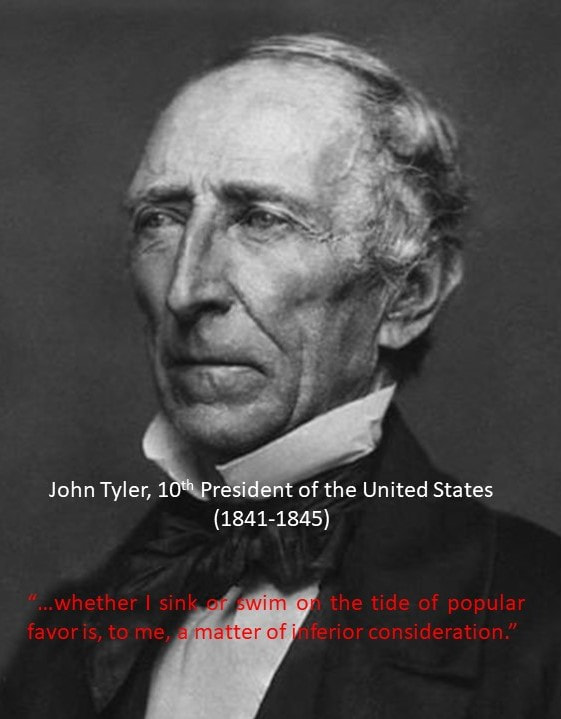
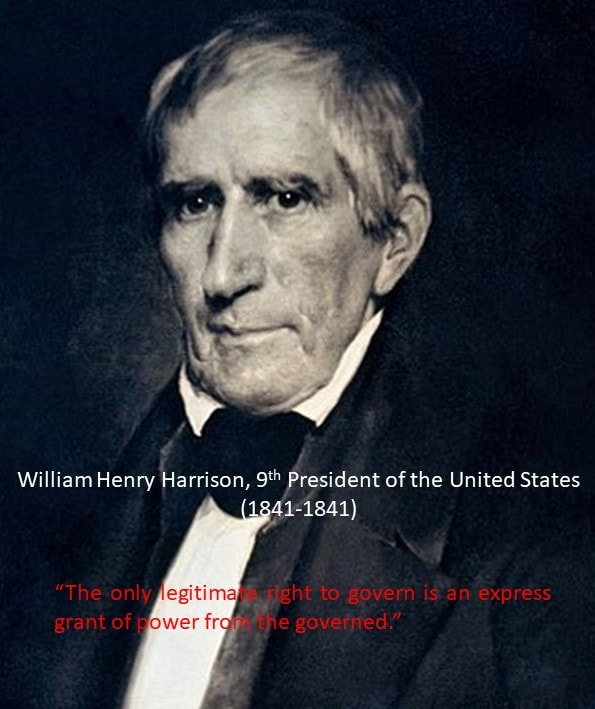
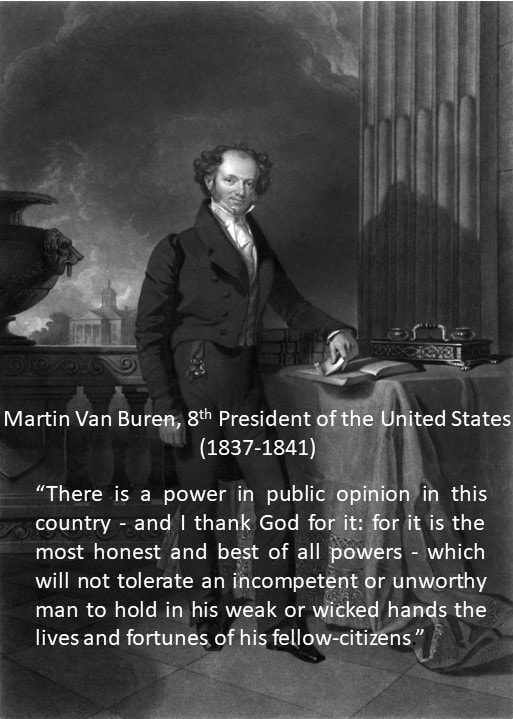
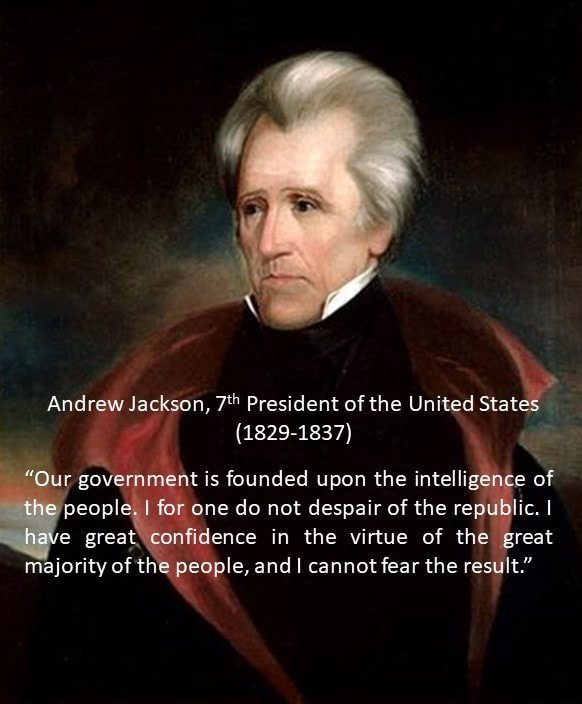
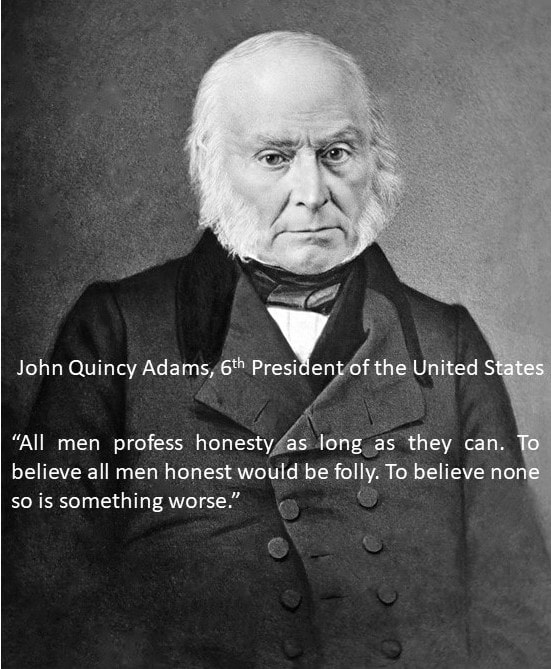
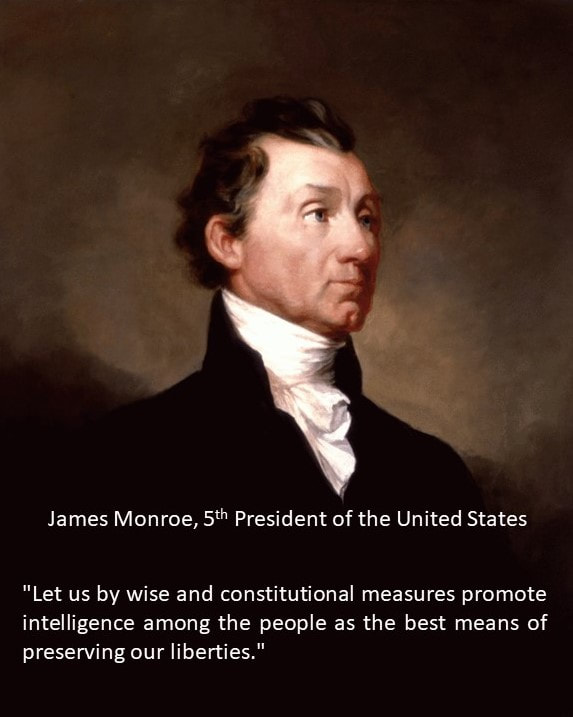
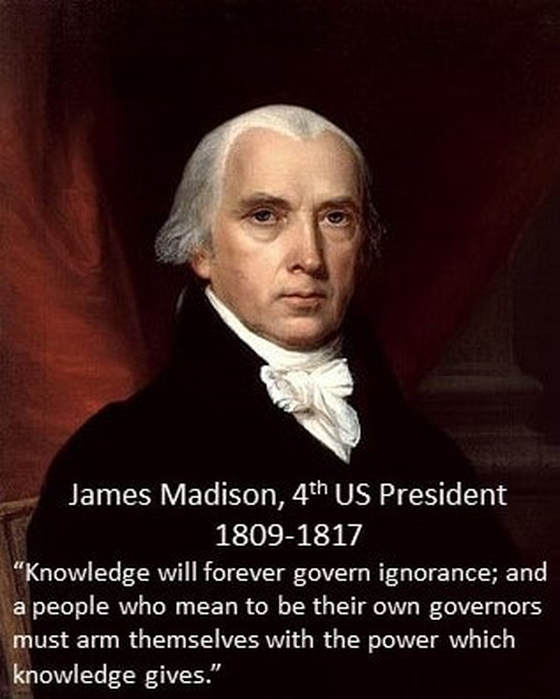
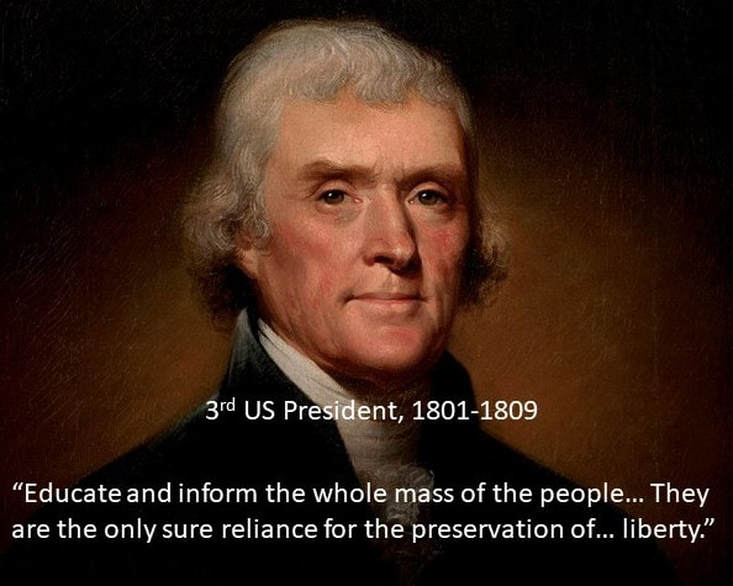
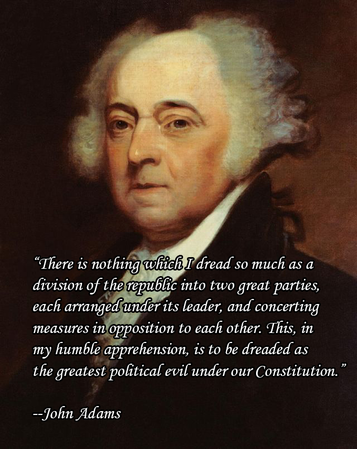
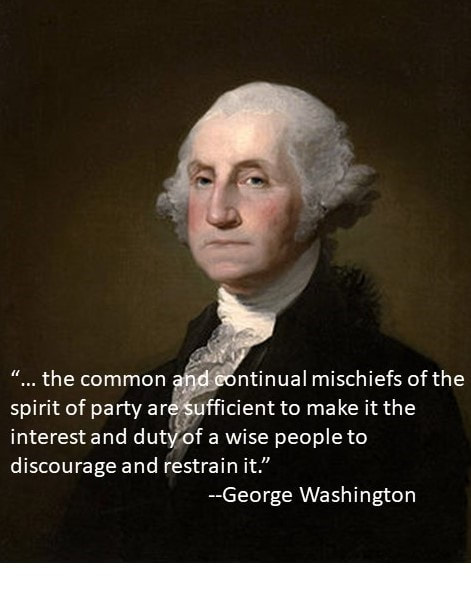

 RSS Feed
RSS Feed
